How Does The LACK OF SLEEP Affect Your Health?
Do you know how does lack of sleep affects your health? Everyone knows after doing activities for hours, our body and brain need to have some adequate rest. Especially with the work and social pressures, our brain becomes tired, so it needs to be rested.
Sleep has a role in blood circulation, repairing body cells, and helping the production of enzymes and hormones. When not getting enough sleep, various diseases will come to the body, ranging from trivial skin problems such as acne to serious health problems, namely high blood pressure, heart disease, stroke, diabetes, and so on.
A body that lack of rest will show some symptoms. Let’s find out more from the review below.
How Does The Lack of Sleep Affect Your Health? – From Dementia to Depression

For some people, insomnia is a fairly common thing. Stress, daily activities, life acceleration make it difficult for you to sleep at night. Though most of us know that staying awake for a long time can be bad for health.
The effects of lack of sleep on the brain
The following study discusses the effects of long-term sleep deprivation on your brain.
Our immune system, respiratory system, and energy levels are regenerated by sleep. Sleep also allows the brain to process the information it has obtained throughout the day, besides regulating our blood pressure and heart rate. During sleep, the body also removes toxins from the neurological activity that we experience during the day. When you don’t have enough time to rest, the body actually turns poisons into a kind of fuel reserve.
Lack of sleep burns brain fuel
In the short term, by eliminating these poisons, our brain will be healthier because all the energy is used for the process. However, in the long run, in cases with people suffering from sleep apnea or chronic insomnia, using all of their brain cavities can affect its function and contribute to this vital organ’s degeneration.
A study using mice
A team of neurologists, led by Michele Bellesi of the Polytechnic University of Marche in Italy, conducted research using mice which they divided into several different groups.
The first group can sleep as much as they want during the day. The second is required to be awake and sleep less than 8 hours a day, and the third group must stay awake for 5 consecutive days so that scientists can observe changes in their brains and see what happens to it.
Clean the cell
Astrocytes are responsible for the brain’s cleansing function and are found in mice as well. By observing the activity of these cells, they can get results.
At the end of the experiment, the mice brain that slept long enough had an astrocyte level of 6%, the second group had an astrocyte activity level of 8%, and the third one after 5 days had astrocyte activity of 13.5%. This means the less we sleep, the more our brain cells will do a thorough “cleaning.”
The brain can ‘eat’ itself
In mice, this process consists of consuming synapses in their brain and showing that the same effect can occur in humans. By not sleeping for several nights in a row, we risk this function to overflow, make us vulnerable to degenerative diseases such as Alzheimer’s, or contribute to dementia in the long term.
Also read: Overcome Depression by Sleeping
Other health problems caused by lack of sleep
Passing by school children or office workers who seemed to have a lack of sleep is no longer a new phenomenon on the streets.
When you have a lack of sleep, it’s true that you will feel tired, irritable or angry, and less productive. However, the long-term effects of sleep deprivation will not only affect your physical health. By not having enough time to sleep, we risk ourselves to get various health problems. Starting from gaining weight to lowering your immune system and making you sick quickly. What’s more, your brain function also drops sharply so that it can trigger a variety of health problems:
1. The brain becomes slow
 Researchers have found that lack of sleep can cause alertness and decreased brain concentration. No wonder if after many hours (or even days) not sleeping well, you become confused yourself, forget easily, and have difficulty thinking clearly.
Researchers have found that lack of sleep can cause alertness and decreased brain concentration. No wonder if after many hours (or even days) not sleeping well, you become confused yourself, forget easily, and have difficulty thinking clearly.
In the medical world, the condition of thinking disorders due to brain fatigue is often referred to as brain fog. But you might be more familiar with the term slow. A slow brain makes it difficult for you to make important decisions.
Although seemingly trivial, this brain fog should not be underestimated. Brain fog can be an early symptom of dementia.
The reaction time for something will also be slower. This is actually dangerous if you are doing activities like driving and operating heavy equipment.
This has the potential to harm yourself and others. A survey shows, ⅓ car drivers fall asleep while driving due to lack of sleep at night!
Next thing is, the ability to solve problems will be declining. With enough sleep, you give the brain time to always improve the ability to think creatively and think of new ideas.
Can you imagine the impact if you work in an area that requires optimal thinking, but you always have less time to sleep at night?
2. Memory deterioration
 When you are sleepy, you tend to forget easily. Aside from the concentration and focus of the brain which worsens, due to lack of sleep, memory also slowly deteriorates.
When you are sleepy, you tend to forget easily. Aside from the concentration and focus of the brain which worsens, due to lack of sleep, memory also slowly deteriorates.
Because during your sleep, the nerves in the brain that store memories are strengthened. An expert from the University of Maryland School of Medicine in the United States, Dr. Avelino Verceles, said, “During sleep, the brain records the things we have learned and experienced all day long into short-term memories.” (That’s why you also can’t go to sleep in a state of anger).
3. Difficult to accept new information
 Sleep deprivation can affect your ability to understand new information in two ways. First, you will become unfocused, making it difficult to receive new information. That way, you can’t study efficiently.
Sleep deprivation can affect your ability to understand new information in two ways. First, you will become unfocused, making it difficult to receive new information. That way, you can’t study efficiently.
Secondly, as mentioned above, the lack of sleep impacts the ability to remember. Weak memory will make it difficult for you to store new information that you learn into memory.
Sleeping for a while after learning new information has been shown to increase the ability to remember and use that information later on.
4. Triggering mental illness
 Sleep deprivation is indeed not a direct cause of psychiatric disorders. However, various studies have found great potential for the emergence of several mental illnesses, such as depression, ADHD, anxiety disorders, and bipolar disorder as a result of lack of sleep.
Sleep deprivation is indeed not a direct cause of psychiatric disorders. However, various studies have found great potential for the emergence of several mental illnesses, such as depression, ADHD, anxiety disorders, and bipolar disorder as a result of lack of sleep.
A study in Michigan, USA, looked at a thousand people aged 21 to 30 years. As a result, those who suffered from insomnia in the first interview had a four times greater risk of suffering from depression when interviewed again three years later. Another study found that sleep disturbance problems occurred before the onset of depression. In addition, depression sufferers who experience insomnia will be more difficult to cure compared to those who do not experience insomnia.
In one study, experts found that insomnia and other sleep disorders might worsen episodes of mania (manic) or depression (depressive) in patients with bipolar disorder. Sleep deprivation itself is believed to trigger episodes of mania, which is a phase of emotional outbursts or uncontrolled behavior.
As a result of a lack of sleep can also trigger anxiety disorders. One study reported that about 27 percent of patients with anxiety disorders begin with insomnia which makes a person difficult to sleep.
Also read: TOP FREE MEDITATION APPS – Better Sleep, Relax, Focus
5. Always feel hungry
Brain specialist and sleep medicine Dr. Chris Winter mentions that one sign of sleep deprivation is constantly feeling hungry. “If the brain does not get enough energy by sleeping, the brain will replace the lack of energy from food,” he explained.
Lack of sleep and rest will increase the production of ghrelin, the hunger hormone in the stomach. Winter explained excess ghrelin will cause the body to ask for fatty and sweet foods. He also mentioned that lack of sleep will affect leptin, which is the hormone full.
“When you don’t get enough sleep, you tend to eat more fatty and sweet foods because the signal that your body is full is disturbed,” he said.
Also read: “I Eat when I’m Stressed!” – Ways To Deal with Emotional Eating
6. Weight gain
As explained earlier, the lack of sleep causes hunger and eventually leads the body to eat sweet and fatty foods. This will result in weight gain.
“When you are tired, you will not be aware of what foods enter the body,” Winter explained. “You look for and eat any food that keeps the body awake”.
According to Winter, insufficient sleep also affects metabolism directly. “The body’s metabolic process will decrease,” he said.
In addition, according to a study published in the Journal Annals of Internal Medicine in 2012, sleeping for 4.5 hours a day in four consecutive days can reduce the body’s fat cell response to the hormone insulin by 30 percent. Finally, fat that is supposed to be converted by insulin into the body’s energy is actually buried in the body.
7. More impulsive
Are you easily irritated if you’re hungry? I know I am. This turned out to be true because the body tends to be more impulsive in a state of fatigue, especially coupled with hunger. Health expert Dr.Gail Saltz said that the body in a state of fatigue tends to do things without thinking. “The ability to choose food and to refrain becomes more difficult,” she explained.
Not only related to food but in a state of fatigue, you also tend to do things spontaneously, such as angry with others.
“This is because the brain does not have the ability to forbid the body,” explains Kelly Baron, professor of neurology at the Northwestern University of Chicago in the United States.
====> End your day and calm your mind with Royal & Pure’s Full Spectrum Evening PM CBD Oil <=====
Sleep deprivation treatments
Every night millions of people struggle to sleep, so we call it insomnia.
According to Medical News Today, every year in the United States about 40% of adults experience insomnia.
Sleep deprivation is also considered a “public health problem” by the Centers for Disease Control and Prevention (CDC).
Some of these scientifically proven natural therapies can overcome insomnia and restore sleep.
1. Aromatherapy
Lavender scents are known to induce a sense of calm and relaxation, and not surprisingly, sleep.
Studies show that massage with essential oils especially lavender can result in better sleep quality.
In addition, this oil can improve the mood, maintain good concentration, and reduce anxiety.
Research has also shown that aromatherapy with lavender slows the activity of the nervous system.
This helps to improve the quality of sleep and positive mood in those with sleep disorders.
2. Light Therapy
Turning on the light before bed helps Moms fall asleep and stay asleep.
Low lighting at night will help trigger the production of melatonin, a sleep-inducing hormone.
A 2014 study published in the Journal of Clinical Sleep Medicine conducted research on office workers.
Office workers who are exposed to natural light often sleep about 46 minutes longer per night than their colleagues who use lights.
Findings show that the work environment can also play a role in nighttime sleep habits.
Getting adequate daylight exposure at work can help employees’ health and well-being.
3. Acupuncture
Acupuncture may increase the secretion of human melatonin production.
A study in the Journal of Neuropsychiatry and Clinical Neurosciences found facts about acupuncture.
Studies suggest that after five weeks of acupuncture treatment, there will be an increase in melatonin production.
This melatonin improves one’s sleep and sleeps quality.
Certain acupuncture procedures have a success rate of almost 90% for insomnia treatment.
4. Herbal Supplements
Melatonin is the most popular supplement for sleep, according to the American Academy of Sleep Medicine.
This can help insomnia patients overcome temporary sleep disorders.
Melatonin can help a person to sleep faster, lengthen sleep, and improve sleep quality.
In addition, they found that the longer the patient was on this supplement, and the higher the dose, the greater the effect on total bedtime.
Mayo Clinic recommends consumption of this supplement 0.5-5 milligrams before sleeping daily for one to three months.
Tips for a better quality sleep
There are several methods that can help you fall asleep if you have insomnia problems. But if it goes on and on, you should see your doctor or visit a specialist.
Here are things you can do to get better sleep:
- Meditate
- Make the bedroom environment more comfortable – declutter
- Perform physical activity (exercise regularly). The World Health Organization (WHO) recommends moderate-intensity workouts at least 150 minutes a week
- Limit the use of electronic devices. Stop using electronics 1 hour before bedtime.
- Make sure you have the same bedtime every day
- Reduce your caffeine intake.
- Before going to bed, have foods that contain tryptic amino acids such as milk and chamomile tea to promote sleepiness. There are also melatonin supplements but, before using them, consult your doctor
- Expose yourself to the sun for a moderate time
- Invest in quality mattresses and pillows
If you have succeeded in changing your sleep patterns, now you have enough sleep. Congratulations! You can feel various benefits from it.
The benefits of getting enough sleep include can reduce the risk of traffic accidents, have a healthier heart, have better memories, reduce the risk of chronic risk diseases, and so on.
====> End your day and calm your mind with Royal & Pure’s Full Spectrum Evening PM CBD Oil <=====
Conclusion
Looking at the facts above on how does lack of sleep affects your health, it is hoped that you can be more aware of how important sleep is in supporting a healthy body and soul. For adults, make sure you get enough to sleep for 7 to 8 hours each night. In addition, never underestimate the effects of sleep deprivation on your health, especially the brain. Sleep deprivation, in the long run, will cause a decrease of brain performance, health problems, and various mental disorders.
If you have trouble falling asleep for more than four weeks and to the point of disrupting your daily activities, consult your doctor.
—————————————————————————————————————————————–
This post may contain affiliate links, which means I make a small commission off purchases, at no extra cost to you. Read my full disclosure here. Thank you for supporting the work I put on this site!
—————————————————————————————————————————————–
We Stress Free does not provide medical advice, diagnosis, or treatment. However, if you need someone to talk to and want to make friends, please feel free to reach me at ferra@westressfree.com. If you would like to REDUCE your STRESS and are interested to do an ONLINE THERAPY, you can do so here.

———————————————————————————————————-—————————-
Disclaimer: The information contained in this website is for educational and informational purposes only and is not intended as health or medical advice. Always consult a physician or other qualified health provider regarding any questions you may have about a medical condition or health objectives.


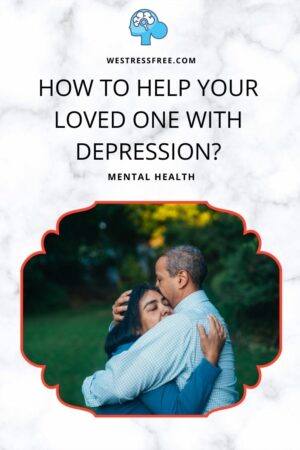
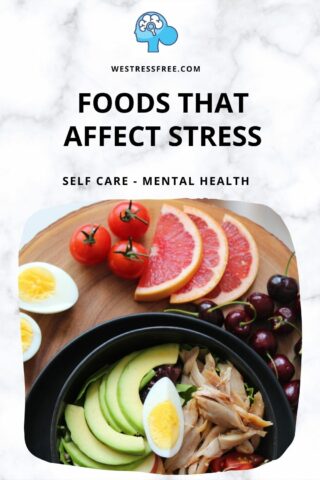
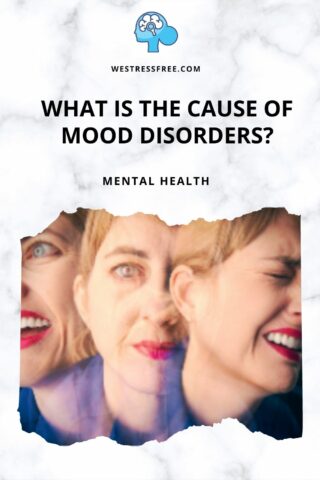
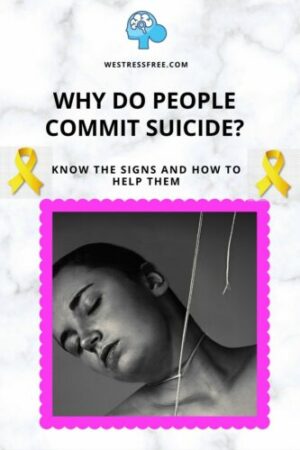


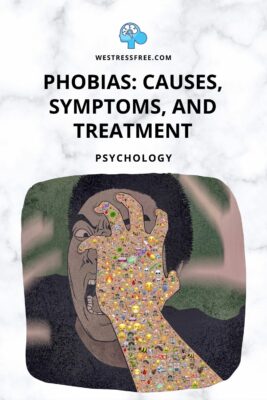

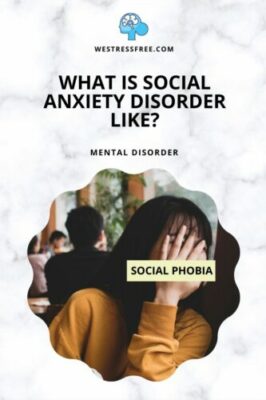
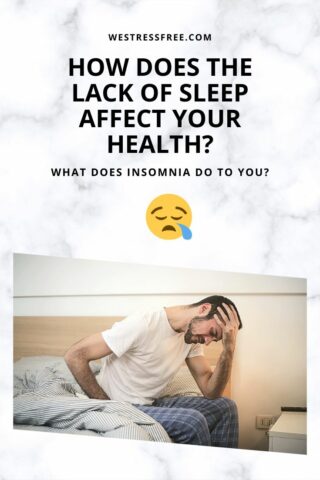








I have been dealing with insomnia for the last 12 years or so all because of depression, stress, PTSD and anxiety. Sadly, it has had a huge stroll on my overall health causing my blood glucose to be higher and loss of memory over things that I’ve barely done the day before. Not to mention, it has also caused me to have various episodes of sleep paralysis. It’s truly an overwhelming feeling having to deal with insomnia.
Hi Stephanie,
Thank you for sharing your experience. It really can be an overwhelming feeling to deal with insomnia along with the other health problems especially psychological disorders like you’ve mentioned.
I hope you find ways that can fit to your lifestyle and help you to deal with insomnia. Please, please take care of yourself. You deserve to enjoy the life to the fullest. Hope the tips I have provided in the article are helpful to you and others.
Take care
Wow its good to find such an amazing review, its great to learn from you today that the lack of proper sleeping can cause several health complications like trivial skin problems such as acne, to serious health problems, namely high blood pressure, heart disease, stroke, diabetes, Insomnia aa a common symptom.
This part of the review got me more facinating, Our immune system, respiratory system and energy levels ar regenerated during sleep….Sleep also allows the brain to process the information it has obtained throughout the day, besides regulating our blood pressure and heart rate. During sleep, the body also removes toxins from the neurological activity that we experience during the day.
I am so excited to read your article, I will follow your site constantly for more knowledge on this topic, thanks for sharing.
Hi there,
Thank you for visiting this site and leaving a comment.
Glad you found this article enjoyable to read and helpful to you.
Stay safe, happy and healthy!
Ferra
I am the type of person that gets to studying and before I know it, it is three in the morning and I have to be up for work in three hours. I do it to myself all of the time.
I used to fool myself and believe that I could function on three or four hours of sleep each night. I can normally handle it for about two weeks, but then it catches up with me.
I become irritable, short minded, and I cannot eat enough: some of the things you mentioned in your post.
It took me a long time to realize what I was doing to myself with my compulsive, nerd-like quality of learning.
Like you pointed out: when I notice that I am going on a nerd bender, I stop myself, make a bookmark, and meditate to calm my mind. It’s the only thing I can do to stop my curiosity. I can attest, that your recommendations do work.
Hi Greg,
Thank you so much for sharing your own experience in this matter. I really appreciate it!
I am so glad you have changed your lifestyle and found ways to improve your well-being.
Practicing meditation, writing gratitude journals, etc are some of the natural ways to combat stress. Great job!
Stay safe, happy and healthy!
Ferra
First of all, i appreciate your recommendation on the use of Melatonin to help combat sleep disorder. I personally have not been finding sleep easily this past 6 weeks as my body has gotten used to staying awake all night.
Your write up is an excellent one, taking into consideration i will take some of the tips highlighted.
Hi Wilfred,
You’re welcome. I am so glad to hear that this post is helpful to you.
Everyone deserves to get quality sleep. So, I hope that my recommendations in this post can help you to get better sleep.
Please let me know if you have any questions and concerns.
Stay safe, happy and healthy!
Ferra
Great article and I couldn’t agree more! My own personal experience with a lack of sleep was this… I ended up with brain fog, shaking in my leg, I lost a ton of weight at first and then I gained a ton when I started eating to stay away to work all night. Sleep is a wonderful thing, even for the busy! Great suggestions!
Hi Diane,
Thank you so much for your kind comment. I really appreciate you sharing your own experience here.
Surely other readers would appreciate it as well. 🙂
I am so glad that you found the suggestions in the article are helpful.
Keep at it. Maintaining a healthy lifestyle like having enough sleep is like our way to thank our body after having to work all day.
Stay safe, happy and healthy!
Ferra
Hello there, thanks a lot for sharing this wonderful piece of information here with us. I must say i really did enjoyed going through your article being a fact that i am also affected by these because i don’t usually get enough sleep, seeing this has really made me scared, i will try as much to get enough sleep a day. Thanks for sharing
Hello Phil,
Thank you for your comment. Glad you found this post useful. Hope you can implement the tips so you’ll get a better quality sleep.
Stay safe, happy and healthy!
Ferra